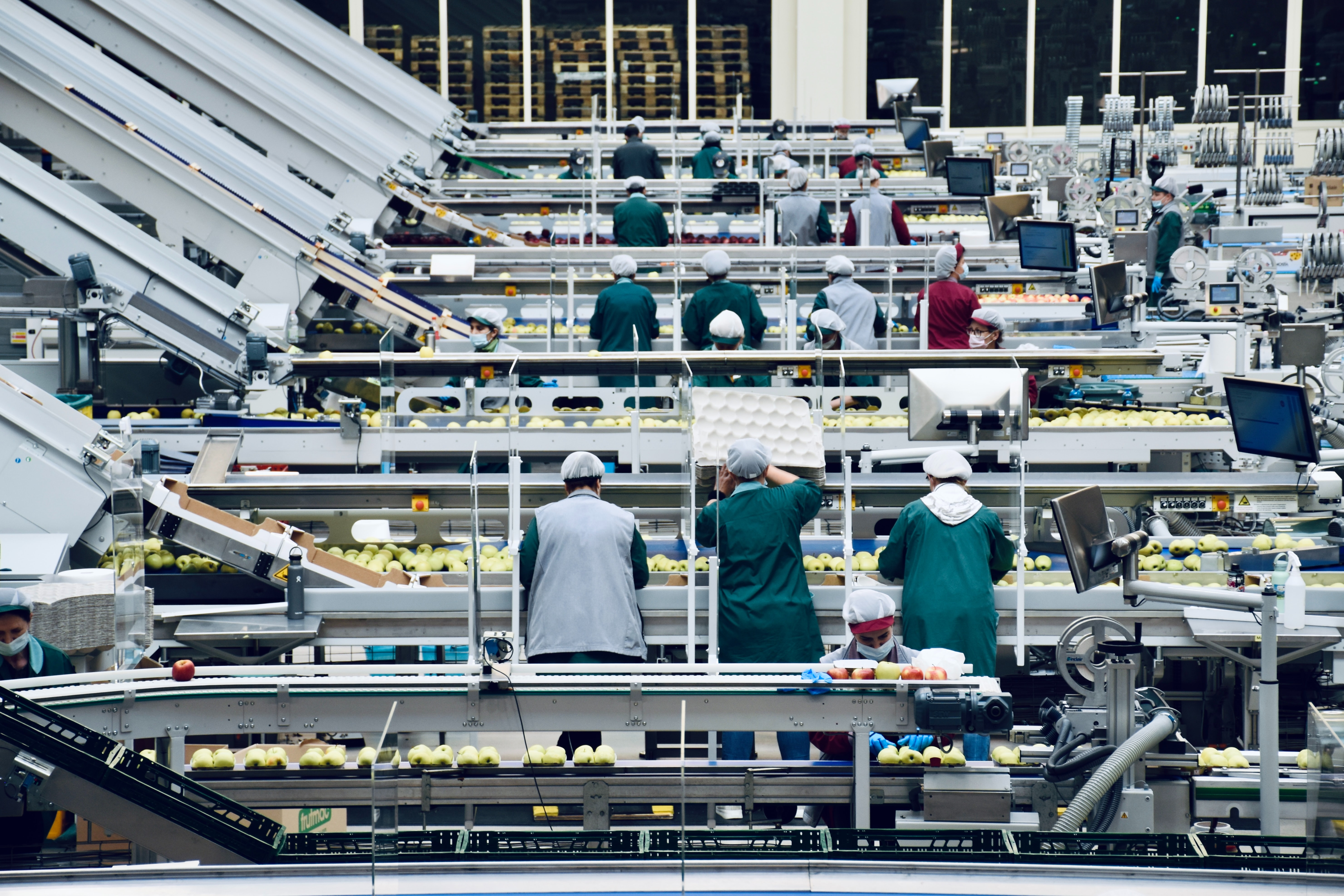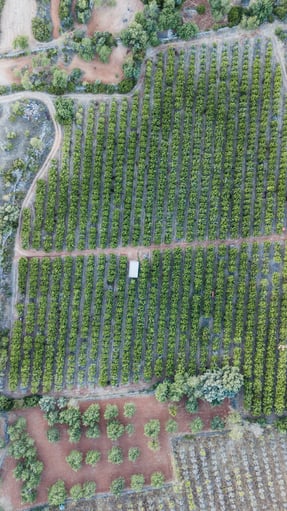How does Blockchain Work in the Food Supply Chain?
The blockchain is poised to revolutionize almost every aspect of our lives. Security has become incredibly important in this digital age and many are pinning their hopes on blockchain technology to build a safe, secure way of logging data.
Blockchain is an immutable digital ledger that can be used to store data. It’s a decentralized system that splits information between various points within the network. This ensures that the data is more secure as only authorized parties are able to access it.
Looking to the food industry, blockchain is being touted as the solution to our current food supply chain pain points after success stories from Walmart and Nestle. And, as a result, blockchain usage in the F&B industry is expected to skyrocket in the next couple of years.
Projections put the global market value of blockchain within the food and agriculture industry at around $1.5 billion by 2026. That’s a staggering jump from just $140 million in 2020.
Yet, as with any technology boom, many are unaware of what the blockchain is, how it works, and how it fits into the food supply chain. As part of our series of posts on the blockchain in our industry, this article will focus on how it improves supply chain processes.

Blockchain and the food supply chain: how do the two work together?
Who?
There are many blockchain networks such as Cardano, Etherium, and Helium — and each network offers a way for businesses to access the blockchain.
IBM is arguably the biggest tech name getting involved in blockchain for the food supply chain. The organization has created its own IBM blockchain technology to power IBM Food Trust, a dedicated blockchain solution that looks to enable safer food, longer product shelf lives, reduced waste, faster traceability, and better access to information. IBM Food Trust is used by some of the biggest names in the food and drink industry, including Nestlé, Dole Food Company, and Walmart (more on this later).
Buffalo Market has also been using the Helium network for blockchain capabilities. Doing so has empowered us to improve our infrastructure to offer maximum traceability across everything we do as part of the food supply chain — and offer our customers complete transparency.
 We do all of this to ensure that our CPG and retail customers can rely on us at every step.
We do all of this to ensure that our CPG and retail customers can rely on us at every step.
Traditional food distributors may make mistakes such as incorrectly storing produce or forgetting to log where and when the produce was at any stage in the supply chain. This can potentially lead to contaminated products being sold to the public or items getting lost somewhere within the supply.
With Helium-powered blockchain, we have been able to automate almost everything to stamp out human error and make our supply chain more efficient.
We also love that Helium allows us to create a robust wireless network that can carry data over large distances without the need for satellites. It’s a low-cost, low-energy network that helps us do better for our customers, our local community, and the environment.
How?
How exactly are these brands, and others, using blockchain in the food supply chain? Let’s take a look.
Sustainable Shrimp Partnership (SSP)
There are two things you need to know about shrimp. One is that shrimp are farmed using aquaculture, where fresh- and saltwater populations are cultivated under strictly controlled conditions. And, two, shrimp offer a high rate of protein retention — making for a great, sustainable source of nutrients for human consumption.
While this is good news for ethical retailers and CPGs, increased demand for shrimp supply could add pressure to the supply chains in place today.
The Sustainable Shrimp Partnership (SSP) is using blockchain to avoid the negative consequences of supply chain pressure. Based in Ecuador, the second largest source of shrimp in the world, SSP is no stranger to big orders, but blockchain has helped them maintain efficiency and security, and ensure continued responsible practices as demand for cheaper shrimp increases.
The group approached IBM to help with tracking and traceability efforts. They now use IBM Food Trust to track and trace every single shrimp. Customers can follow the full journey of an individual shrimp as it passes through the supply chain, from the food they eat to the distribution centers they end up in — boosting confidence in the product and mitigating risk.
Nestle
In their attempts to become the first major food and beverage company to get in on blockchain, Nestle had been working with IBM Food Trust since 2017. However, in 2019 they teamed up with a new and innovative blockchain platform, OpenSC, to pilot open blockchain technology for the first time in the industry. The task? Trace milk and palm oil from producers across the globe.
OpenSC was founded by WWF-Australia and The Boston Consulting Group Digital Ventures. Their platform was developed as a platform that will give anyone, anywhere access to independently verifiable sustainability and supply chain data. So it comes as little surprise that Nestle chose the company to help increase their transparency and product traceability.
As we’re about to see, this pilot went very well and triggered a long-lasting relationship between Nestle and OpenSC. This is great news for businesses and consumers who want to guarantee that the milk and palm oil used in products meets their values and needs.

Nespresso
Nestle also partnered with OpenSC to increase transparency levels and improve the lives of those producing their Nespresso brand coffee. The brand is using OpenSC’s technology to trace every bag of coffee digitally and securely from the 1,185 smallholder farms of the AMKA Cooperative in South Kivu, all the way to the consumer.
OpenSC’s solution uses a Public Blockchain to create a tamper-proof digital log of the coffee’s journey, recording when, where, and by whom it was grown, collected, processed, and shipped. It also provides assurance to customers that every farmer receives the right payment, verified automatically.
Nespresso hopes that the partnership will help them to improve their sustainability efforts by collecting and storing trustworthy data. The immutable properties of the blockchain ensures that the brand can continue to build trust with increasingly eco-conscious shoppers and stakeholders.
Organo
Organo is one of the world's leading producers and marketers of healthy, convenient, and affordable food, nutrition, and beauty products. In 2019 Organo partnered with IBM Food Trust to implement its traceability strategy.
Organo started out by selectively sharing key information about its products with relevant parties through hyper-secure blockchain technology. The idea was to offer a higher level of transparency to enable better collaboration with stakeholders across market verticals and build real trust through immutable data.
Why?
Why should your business look to blockchain technology to improve the food supply chain? As we’ve seen from our list of how the technology is being used, there are many benefits to gain.
Blockchain technology has the potential to:
- Improve traceability — creating safer, more reliable supply chain workflows with less waste.
- Ensure food safety and quality — which we cover in more detail here.
- Reduce misconduct and fraud — blockchain is very hard to hack, so your data is safer.
- Boost customer happiness — the food supply chain has had a hard few years. Blockchain could just rebuild trust with customers and promise a more transparent future.
- Save your business money — with all of the above sorted out, your bottom line is bound to look better!
At Buffalo Market, we’re always looking for ways to help retailers and CPGs source their products responsibly. We've been using blockchain technology to help grow businesses and get products into customers’ baskets faster, safer, and most cost-effectively.
Get in touch today to learn more.


